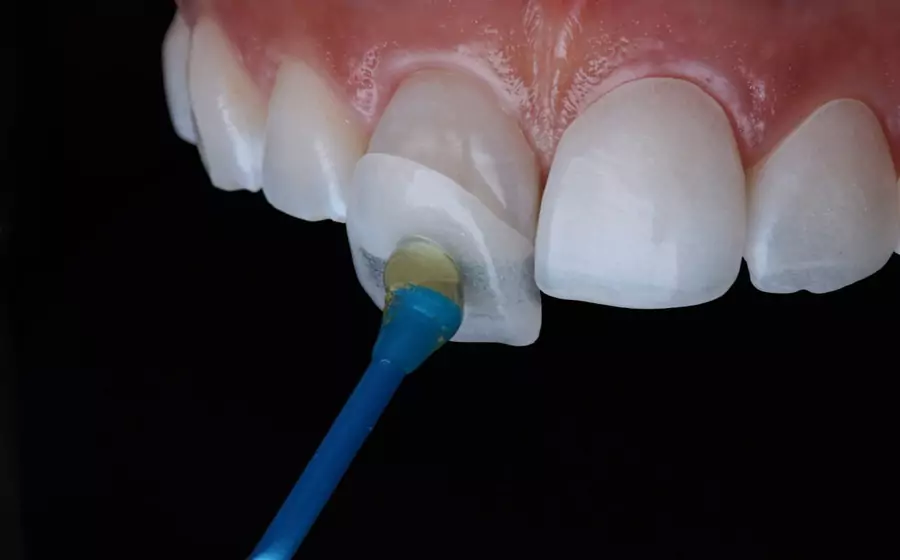
- August 29, 2024
Understanding Dental Veneers: What They Are and How They Can Transform Your Smile
Dental veneers are a popular cosmetic solution for improving the appearance of teeth that are chipped, stained, worn down, misaligned, or have gaps. They can also serve as a restoration option, providing an alternative to crowns and teeth whitening while helping to protect teeth from further damage.
What Are Dental Veneers?
Dental veneers are thin, custom-made shells typically made from porcelain or composite resin, designed to cover the front surfaces of your teeth. They are crafted to enhance your smile by hiding imperfections, making teeth appear straighter and whiter.
When Are Veneers Necessary?
Generally, dental veneers are used for cosmetic purposes and are not essential from a medical standpoint. However, they can sometimes be used to protect teeth damaged by decay or trauma. Your dentist might suggest veneers if you have issues such as:
1. Slightly Crooked Teeth: Veneers can mask minor misalignments and create the appearance of straighter teeth, addressing problems caused by genetics, thumb sucking, or injury.
2. Gapped Teeth: Veneers can close small gaps between teeth more quickly than traditional orthodontic treatments. Braces are another way of closing gaps but it takes much longer in comparison to the quick fix of veneers.
3. Teeth Discoloration or Staining: Veneers can cover discoloration and stains from food, drinks, tobacco, certain medications, or aging. Veneers can camouflage and deliver a brighter and even appearance.
4. Chipped or Broken Teeth: Veneers are an effective way to conceal chips or fractures, giving a more natural and complete smile.
5. Irregularly Shaped Teeth: If your teeth are irregularly shaped due to anomalies or trauma, veneers can improve their appearance.
If you think veneers might be right for you, schedule a consultation with your dentist to evaluate your oral health and discuss your options.
Types of Dental Veneers
There are two main types of veneers:
1. Porcelain Veneers: Made from thin porcelain pieces, these veneers resist stains well and provide a natural look. They are durable but more expensive and require more tooth preparation.
2. Composite Resin Veneers: Made from a dental composite material, these veneers are less costly and require minimal tooth preparation. However, they are less durable and more prone to staining compared to porcelain.
The Veneer Procedure
The veneer process typically involves two to three visits:
1. First Visit: Your dentist will assess your needs and suitability for veneers, clean your teeth and gums, remove a thin layer of enamel if needed, and take impressions to create custom veneers.
2. Second Visit: Once your veneers are ready, your dentist will check the fit, make any necessary adjustments. If the appearance and fit are accurate, then the dentist will etch your teeth, bond the veneers with special cement, and use a light cure to secure them.
3. Third visit: Incase there is more aesthetic enhancement and improvement needed, a third visit is used for final fitting and finishing.
Aftercare and Longevity
Veneers can last between 10 to 15 years, or even longer with proper care. That being said, veneers are not ever lasting and can chip or break under few situations, likewise the adhesive can rarely break down and need a refit.
Longevity of veneers is dependent on factors like oral hygiene maintenance. To maintain them:
- Brush twice daily with a soft toothbrush and non-abrasive toothpaste.
- Floss daily.
- Avoid hard, sticky, or chewy foods and use a mouth guard for sports.
- Visit your dentist regularly.
Discomfort During the Procedure
Getting veneers is generally not painful, though some discomfort may occur during tooth preparation and adhesive application. If you have concerns about pain, discuss them with your dentist beforehand.
Benefits of Dental Veneers
1. Durability: Veneers are long-lasting with proper care.
2. Natural Appearance: They can match the color and texture of your natural teeth.
3. Stain Resistance: They are designed to resist staining.
4. Boosted Confidence: Veneers can enhance your smile and self-esteem.
5. Easy Maintenance: They require similar care as natural teeth.
Considerations
- Irreversibility: Once applied, veneers cannot be removed without damaging the tooth.
- Cost: Veneers can be expensive, depending on the number needed.
- Replacement: They may need to be replaced after several years.
Final Thoughts
If you're seeking a quick way to improve your smile, veneers might be a great option. At AGMC Clinic, we offer various veneer choices to suit your needs. Contact us today to schedule a consultation and start your smile transformation.
Book an appointment through our website or call us to discuss your dental needs with our team.
By Dr. Aamer Qayum Khawja
